Satellite images show deadly destruction of Gaza after Israel responds to Hamas attack
Hospitals in Gaza are ‘at capacity’ with only 10 to 12 hours of fuel left in the besieged enclave
Your support helps us to tell the story
From reproductive rights to climate change to Big Tech, The Independent is on the ground when the story is developing. Whether it's investigating the financials of Elon Musk's pro-Trump PAC or producing our latest documentary, 'The A Word', which shines a light on the American women fighting for reproductive rights, we know how important it is to parse out the facts from the messaging.
At such a critical moment in US history, we need reporters on the ground. Your donation allows us to keep sending journalists to speak to both sides of the story.
The Independent is trusted by Americans across the entire political spectrum. And unlike many other quality news outlets, we choose not to lock Americans out of our reporting and analysis with paywalls. We believe quality journalism should be available to everyone, paid for by those who can afford it.
Your support makes all the difference.Dramatic aerial images of Gaza shows the extent of damage caused by deadly Israeli airstrikes, that have caused terror and devastation across the region.
Residential buildings, markets and mosques have been destroyed in retaliation for the attack launched by Hamasterrorists on Israel’s territories on Saturday.
The Gaza energy authority has warned that they only have “only 10 to 12 hours of fuel left”, while hospitals are said to be “at capacity” with thousands injured and awaiting treatment.
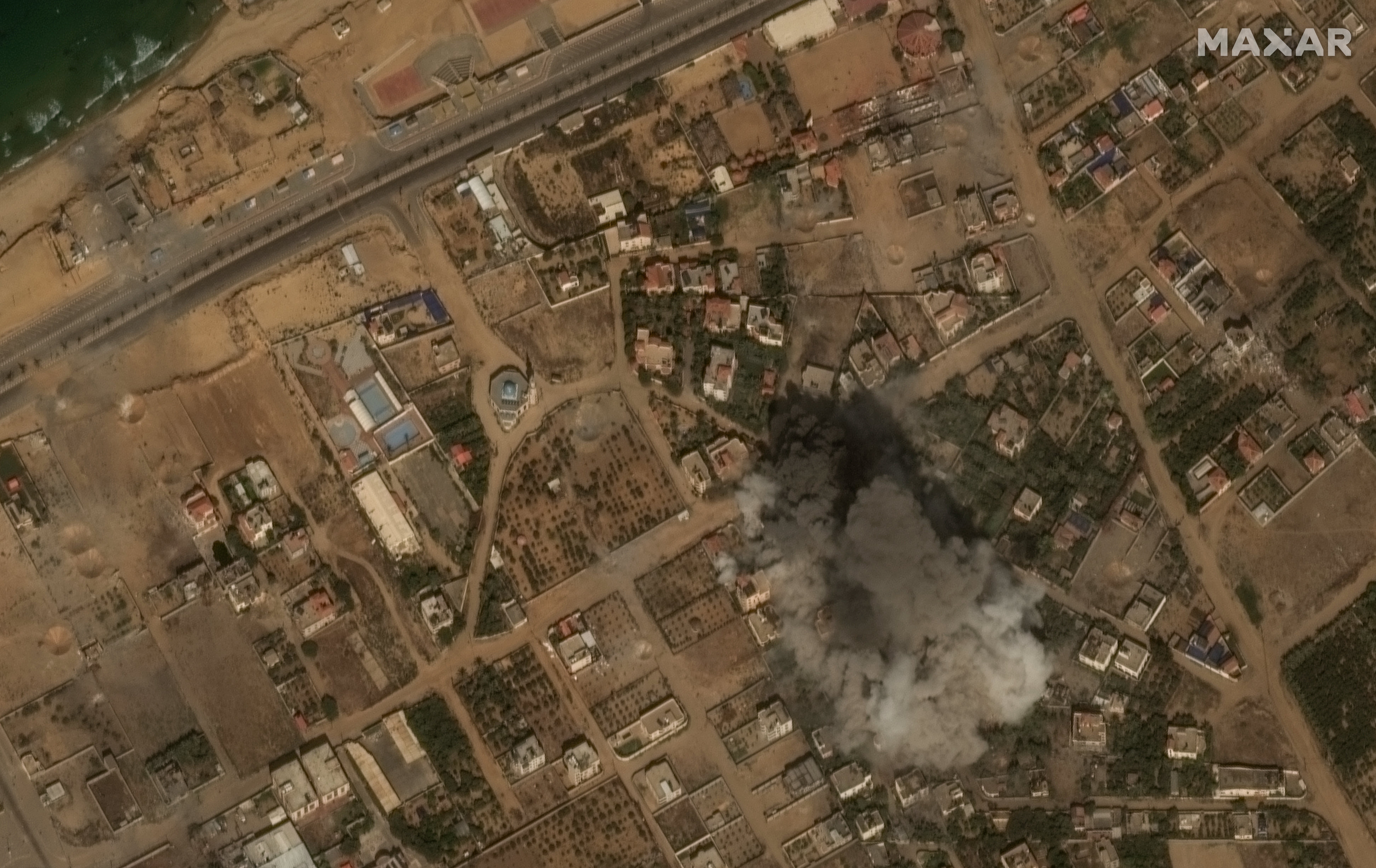
Following the attack upon its citizens by Hamas, Israel has announced a “complete siege” and has cut off water, food, fuel and electricity supplies to the region, which is home to 2.3 million people.
One image taken by Maxar shows smoke rising above buildings in Gaza, which has so far killed at least 950 people, with more than 2,700 wounded.
Follow our live blog for all the latest updates
Israeli military officials have warned that they have “created an iron wall of tanks, helicopters and aircraft” around the enclave, with airstrikes continuing for the fourth day.
Meanwhile, Palestinian authorities have accused Israel of targeting the “entire neighbourhood” around the Al-Sousi mosque, which was razed to the ground by an airstrike on Monday. .
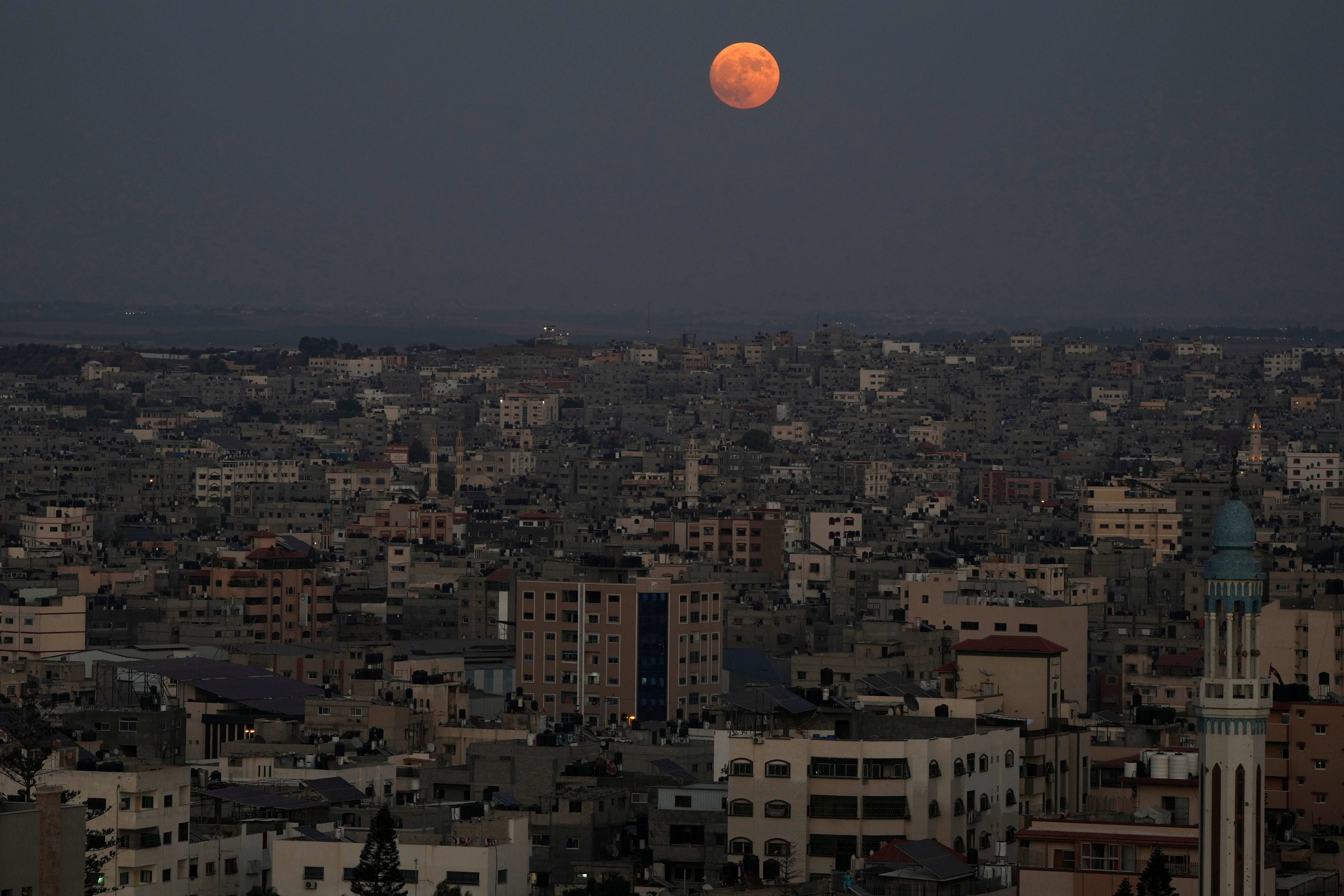
The mosque is located inside Gaza City’s Shati refugee camp, with three other mosques targeted in the area, with its population running low on medicine and food.
Dozens of Palestinians are said to have been killed in the camp, with images showing survivors clambering over rubble and piling bodies onto stretchers.
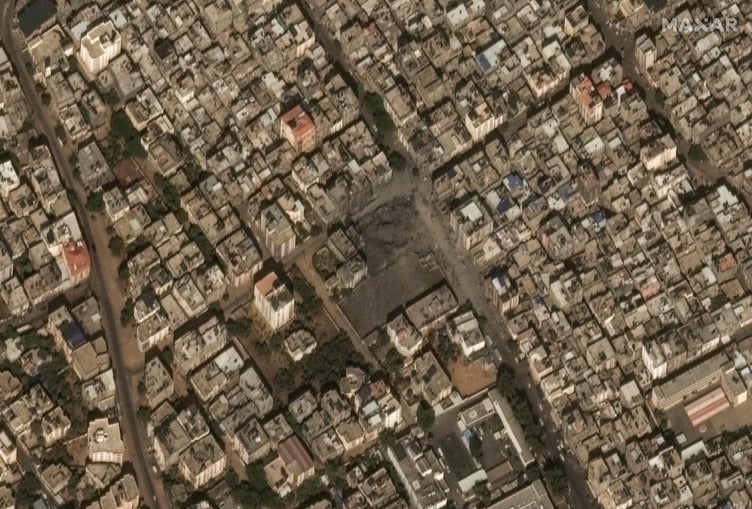
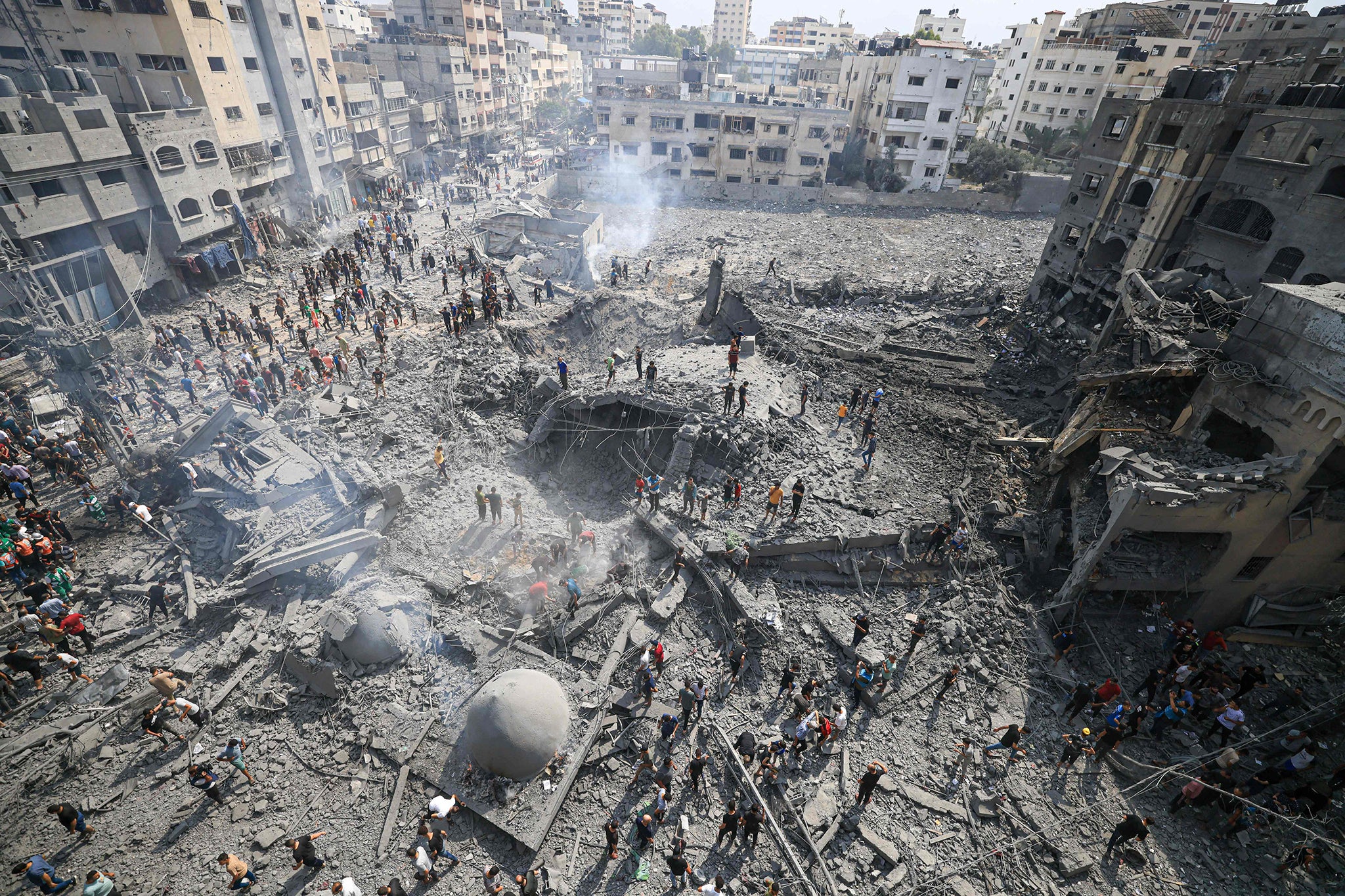
Gaza City’s Yassin mosque has also been destroyed in an airstrike, with satellite imagery showing the structure’s dome to be obliterated.
The Rimal neighbourhood has also suffered deadly bombardments, with residential buildings and shops destroyed, with rescue officials reporting that “large numbers” of people were still trapped under the rubble.
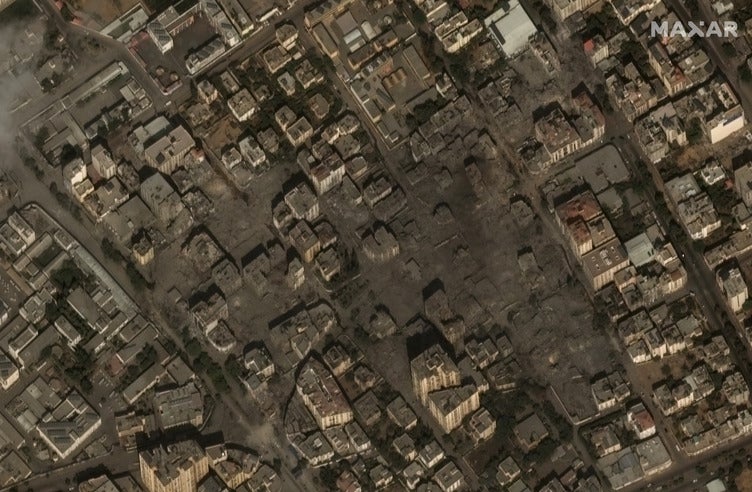
The Israeli military said it had struck undreds of targets in Rimal, which is home to universities, media organisations and ministries of the Hamas government, who first gained control of the Gaza Strip in 2007.
The latest conflict has now claimed the lives of nearly 2,000 people, with Israel’s prime minister Benjamin Netanyahu stating on Monday that their bombardment of Gaza had “only started”.
It began after an unprecedented attack by Hamas militants on Saturday morning, which saw armed groups open fire on Israeli civilians and launch rockets towards major cities including Tel Aviv.
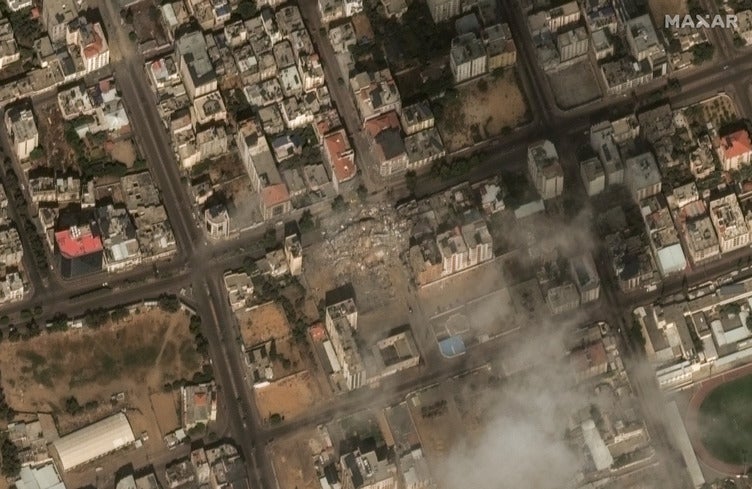
Families were killed in their own homes, while gunmen killed 260 partygoers at a festival near the border before taking an estimated 100 people hostage.
Following aerial bombardments, Abu Ubaida, a spokesperson for the armed section of Hamas, said that they would begin to execute civilian hostages if innocent civilians are targeted.
As well as the siege, Israel have also called up 300,000 of its reservists, with Netanyahu warning: “What we will do to our enemies in the coming days will reverberate with them for generations.”
United Nations Secretary-General Antonio Guterres later said he was “deeply distressed” by Israel’s decision to impose the siege, while the UN are attempting to accommodate 200,000 refugees in Gaza.




Join our commenting forum
Join thought-provoking conversations, follow other Independent readers and see their replies
Comments